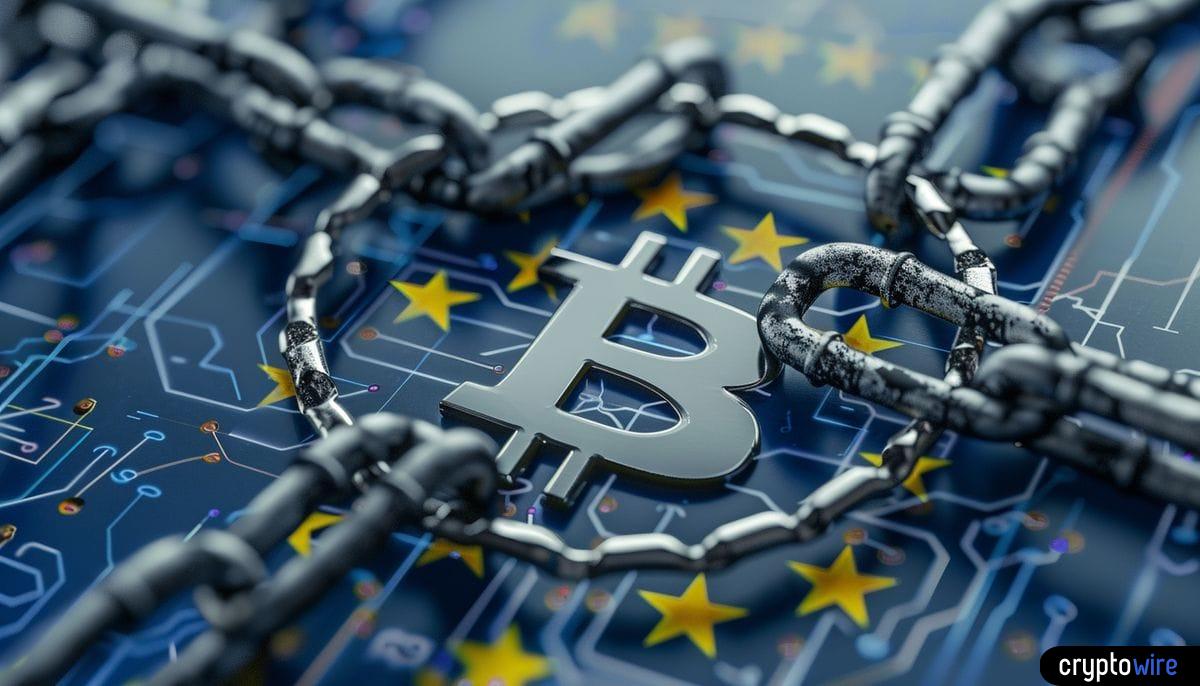European Union (EU) lawmakers have recently taken significant steps to enhance measures aimed at combating sanctions violations, particularly those involving cryptocurrencies. The new regulations underscore the EU’s commitment to addressing the challenges posed by digital assets and emphasize the importance of a unified approach with standardized definitions and penalties for infringements.
The European Parliament recently approved stringent new laws designed to combat violations related to travel bans, arms embargoes, sectoral restrictions, and asset freezes, with a specific focus on crypto-assets and wallets. The updated legislation expands the scope of EU restrictive measures to include a wide range of financial services, explicitly mentioning the provision of “crypto-assets and wallets.” Sanctions may involve freezing assets, including those held in cryptocurrencies.
A press release highlighting the key provisions of the legislation emphasized the establishment of consistent definitions for violations, such as failure to freeze funds, non-compliance with travel bans or arms embargoes, transferring funds to sanctioned individuals, or engaging in business with state-owned entities of sanctioned countries.
Despite the establishment of sanctions at the EU level, enforcement remains the responsibility of individual member states, leading to variations in definitions and penalties across jurisdictions. To address this issue, the directive aims to standardize enforcement procedures and establish uniform penalties for breaches of EU sanctions, thereby strengthening the overall effectiveness of the EU’s sanctions framework.
The new rules received overwhelming support from parliamentarians representing the 27 EU member states, with 543 votes in favor, 45 against, and 27 abstentions. The impetus for these regulations stemmed from concerns that EU financial sanctions against Russia were being circumvented.
The initiative comes at a critical time when diverging national approaches within the EU have exposed weaknesses and loopholes in sanctions enforcement, particularly in light of Russia’s invasion of Ukraine. The European Parliament has endorsed a comprehensive set of regulations to address these issues, including those related to cryptocurrencies.
Sophie in ‘t Veld, a Dutch lawmaker overseeing the legislation, emphasized the importance of the new rules in addressing existing weaknesses and loopholes, noting that the regulations would enable the confiscation of frozen assets.
Historically, the enforcement of sanctions within the EU has been decentralized, with individual member states responsible for implementation. This decentralized approach has resulted in inconsistencies in defining sanction violations and imposing penalties across different countries.
The newly approved directive introduces stricter penalties for individuals found guilty of violating or circumventing sanctions. Under the updated laws, such transgressions will be considered criminal offenses punishable by prison sentences of up to five years across all 27 member states.
Before the legislation can come into effect, it must receive approval from the Council, comprising top government officials from member states. Once endorsed by the Council, the new regulations will enhance the EU’s capacity to enforce sanctions effectively and combat illicit financial activities, including those involving cryptocurrencies.
Ian is a cryptocurrency enthusiast blending humor with professionalism. With an engineering background and a storyteller's heart, he simplifies the blockchain world with sharp analysis and a touch of wit. At Cryptowire, he brings his unique perspective to make digital financial innovation accessible to all.















































